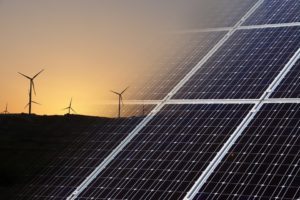Alternative Fuels: Pros & Cons
 It can be helpful to consider alternative fuels pros and cons in order to acquire a better understanding of these fuels. Although it may seem like the many pros to alternative fuel sources make them superior to more traditional fuel types, there are also some cons that make switching to these types less than ideal.
It can be helpful to consider alternative fuels pros and cons in order to acquire a better understanding of these fuels. Although it may seem like the many pros to alternative fuel sources make them superior to more traditional fuel types, there are also some cons that make switching to these types less than ideal.
List of Alternative Fuels Pros and Cons
Taking a close look at some of the pros and cons of alternative fuel use can help to put things in perspective. Pros of alternative fuels include:
- New Employment Opportunities: As alternative fuel sources are developed and integrated, many new jobs will become available. For instance, the installation and maintenance of wind turbines or solar panels will require lots of manpower. Developing new technologies and ways to harness alternative fuels also requires job positions to become available.
- Makes Energy Independence Possible: Energy independence is desirable for many countries that don’t have the resources to produce traditional types of fuel. By harnessing wind or solar power, countries can gain energy independence, saving money in the long run and avoiding reliance upon imports of fuel.
- Reduces Levels of Pollution: Energy sourced from renewable, clean sources reduces harmful output into the environment. Although the creation and installation of alternative fuel infrastructure may make use of highly-pollutant fuels, once they are in place these sources of energy have minimal levels of negative output.
- Easy Transition: Switching over to alternative fuels won’t cause drastic lifestyle changes. For instance, rather than going to the gas station to fuel up cars, you could plug your vehicle into a charging station. Electricity for homes and businesses could be generated by alternative fuels and work just as energy sourced by coal does.
Cons of alternative fuels include:
- Underdeveloped Infrastructure: The infrastructure required to generate enough power for everyday use just isn’t in place. It would take lots of work to install the means to make the switch over to alternative fuels for people in all areas of the country.
- Allocates Resources that are Needed Elsewhere: In order to use alternative fuels, much land space is needed. Wind turbines and solar panels take up a lot of space, especially if they are needed to generate enough power to act as a main source of energy. The land that is taken up with these operations could be used for housing or, perhaps more importantly, as fields designated to farming and producing food for our ever-growing population.
- Replacement Will Take Time: Switching to alternative fuels is a major undertaking. Since most technologies currently in place rely on oil-based fuel, switching to alternative fuels will be a lengthy and expensive process.
- Skillset Needed: To manufacture alternative fuels, a specific skillset is required. The transition to learning the appropriate skills adds more time and money to making the switch to alternative fuels.

